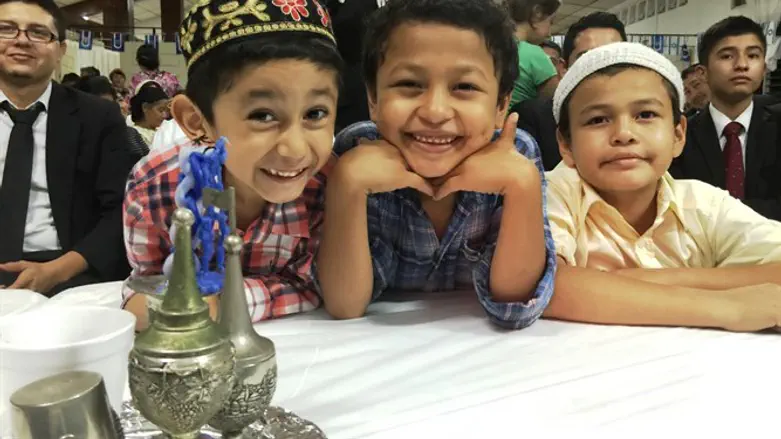
Arutz Sheva spoke with Sarah Israel, a descendant of Conversos (Jews forced to convert to Christianity during the Spanish Inquisition), who found her way back to Judaism in her native Spain.
Sarah explained that her mother went through a spiritual search process but no religion satisfied her until she discovered Judaism, where she felt that "the true G-d is and where she belongs." Her mother became close to Judaism and Sarah also became interested. Later, Sarah attended a Shabbat gathering organized by Shavei Israel emissaries who had come to Spain. (Shavei Israeli is an Israeli organization that helps lost and hidden Jews to return to their roots.)
"I went for Shabbat and they spoke about Conversos there," Sarah says, explaining that initially, she didn't see any connection between them and herself and her family. At the time, she felt a yearning to join the Jewish people like Ruth the Moabite, but during that Shabbat, the conversation revolved around traditional customs that were preserved among the Marranos from generation to generation which were rooted in Judaism.
The discussion led her to think about the customs she grew up with in her own home. Among other things, she remembered a custom of breaking a glass at weddings, which no one in the family could explain.
Sarah also relates that in her grandmother's house there were two kitchens for an unknown reason. No one knew why and no one asked why, but the family got used to it. When her grandmother died, they placed her on the floor as opposed to the prevailing Christian custom in the area. Later, when Sarah spoke to volunteers at the Jewish burial organization in Madrid, she discovered that this is also a Jewish custom. (There is a Jewish custom that if a person dies at home, the dead body is placed on the floor if possible and covered until it is taken to be prepared for burial.)
The discussion that Sarah had after Shabbat with the Shavei Israel emissaries about her family customs closed a circle for her. She, who wanted to connect with the Jewish people, discovered that she was, in fact, part of the Jewish people - a part that had to abandon Judaism and wander for hundreds of years.
In her book Repaired Vessels (published in Hebrew), Sarah describes how she and her son Baruch coped with adapting to Jewish life in a small Spanish village, where she and her family went through the first stages of conversion. On one hand, it was very difficult since no one in the village was familiar with Jewish customs or even Jews themselves. On the other hand, Sarah said that her relationship with the people in her village was very good. The villagers were understanding and respected the family's choices. They accompanied the family's process of transition and their ultimate move to Madrid.
When the family reached Madrid, practicing Judaism became much easier due to the large Jewish population there. After they went through a preliminary conversion process in Madrid, the family moved to Israel to complete the process, settling in Beit El.
When we asked Sarah about the reports of tens of millions in Spain, Portugal, Brazil, Honduras and other countries who claim to be linked to the Jewish people as the descendants of the Conversos, she says that in her opinion, this is one of the signs of redemption. "There's a promise from God that all souls will return in order that the redemption will be complete - this is definitely a sign of redemption." However, according to Sarah, each case must be examined in depth, since it can be assumed that over the years, "hitchhikers" have tried to cling to the people who produced so many intellectuals, leaders and people of influence.